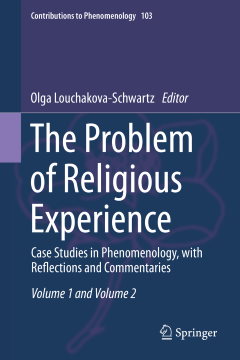Repository | Book | Chapter

(2019) The problem of religious experience, Dordrecht, Springer.
The other as trace of infinity
phenomenology and religious experience in the thought of Emmanuel Levinas
Massimo Mezzanzanica
pp. 143-157
How does the phenomenological concept of phenomenon change if we consider an experiential scope such as the religious one, in which the dimension of invisible, of something that lies beyond the field of appearances, is essential? My contribution aims to discuss this question referring to the phenomenology of Emmanuel Levinas. In Levinas, philosophy and religion, though profoundly different, are closely interwoven. On the prephilosophical background of the Jewish religious experience, and in particular of the reading of the Bible, Levinas affirms the prevalence of ethics, understood as responsibility for the other, in relation to metaphysics. The experience of the other and of the expressiveness of his face is what makes it possible to break the totality of being and opens to the dimension of the infinite. In this sense, the "epiphany" of the other's face—that is, intersubjectivity—is the condition of the relationship with God. Thus, philosophy and the Bible find a common element in the fact that the former has the task of thinking the wholly Other from being and from logos. By preserving the mystery of the other's otherness and its singularity, the ethical relationship allows seeing in it a trace of God, the presence of infinity.
Publication details
DOI: 10.1007/978-3-030-21575-0_9
Full citation:
Mezzanzanica, M. (2019)., The other as trace of infinity: phenomenology and religious experience in the thought of Emmanuel Levinas, in O. Louchakova-Schwartz (ed.), The problem of religious experience, Dordrecht, Springer, pp. 143-157.
This document is unfortunately not available for download at the moment.



